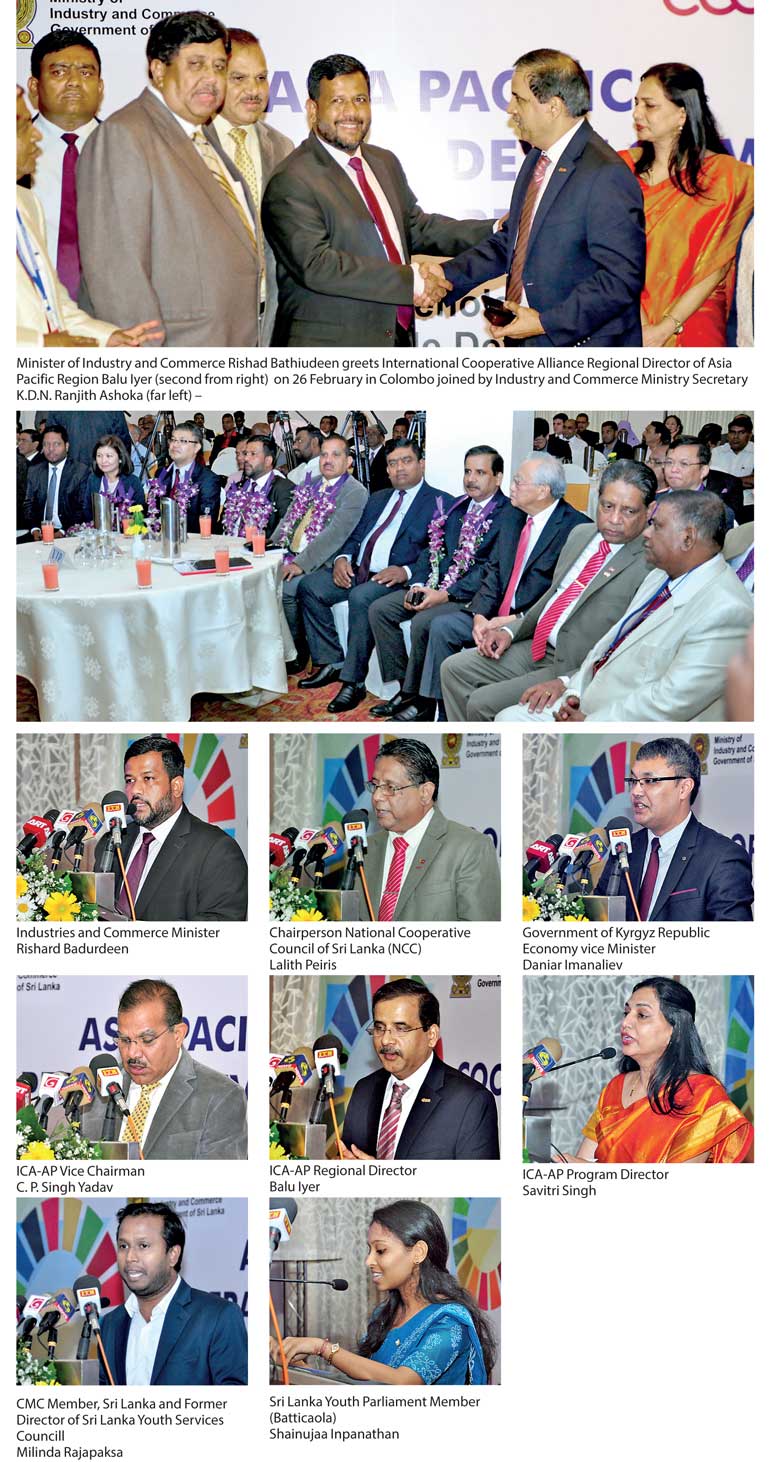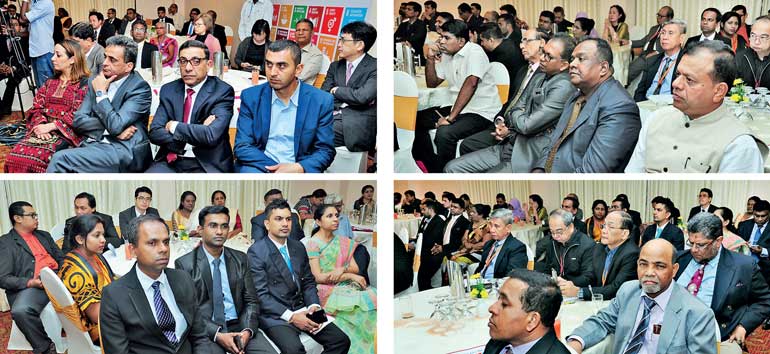Tuesday Feb 17, 2026
Tuesday Feb 17, 2026
Wednesday, 28 February 2018 00:00 - - {{hitsCtrl.values.hits}}


The asset base of Sri Lankan cooperatives has increased to nearly Rs. 3 billion ($ 18 m). Co-ops are no longer charitable but they too should now compete in the liberal market economy.
“Cooperatives are no longer charitable organisations and they have to compete with other institutions in a liberalised market economy. Accordingly, cooperatives may formulate proper strategic plans to sell their products and services,” announced Minister of Industry and Commerce Rishad Bathiudeen on 26 February.
Bathiudeen was addressing the launch of Asia Pacific Cooperative Development Conference by the International Co-operative Alliance (ICA) at Galadari Hotel Colombo on 26 February. This is the first-ever such ICA Conference to be held in Sri Lanka.
In attendance were Regional Director of Asia Pacific Region of the International Cooperative Alliance Balu Iyer, Deputy Minister of Economic Affairs of Kyrgyz Republic Denair Inanalier, Chairman of the National Cooperative Council of Sri Lanka W. Lalith A. Peiris and visiting cooperative reps from 27 countries.
The two-day sessions that conclude on 29 February will focus on integrating Sustainable Development Goals (SDGs) to cooperative systems. This series of ICA sub-regional conferences began last year with three already concluded (In Jordan for Central Asia, in Mongolia for East Asia, and in Philippine for South East Asia).
“It is obvious that this conference has paid its attention to socio-economic, cultural well-being, poverty, hunger, food conservation, environment conservation, etc. The recommendations, proposals and conclusions of this conference could be implemented through the cooperative movement and be contributed to the sustainability in the region. At present discussions and activities are taking place around the world on SDGs due to their importance. Similarly global Co-operative movement will also find out ways and means to achieve SDGs through this largest Community based movement in the world,” said Bathiudeen.
He added: “The Government and the Cooperative movement could jointly implement programs to achieve SDGs successfully. I would like to emphasise further discussions about the recommendations and exclusions of the Ministers Conference are taking place and necessary action to implement them are being worked out. Cooperatives are no longer charitable organisations and they have to have a considerable revenue to meet their expenses for their survival.
“As all of you are aware cooperatives also have to compete with other institutions in a liberal market economy. Accordingly cooperatives may formulate proper strategic plans taking into consideration of market situation and competitiveness to sell their businesses and services. The cooperative movement has tremendous strength to meet business challenges in the open economy and Sri Lankan cooperative sector is a good example which started 112 years ago. There are almost 14,500 cooperatives in various productions, services, SMEs, women’s development, rural banking, insurance and farming sectors. Cooperatives are also now present in our FMCG retail sector – in Sri Lanka through ‘Co-op City’ shops. Lankan cooperative assets are a huge $ 1.8 billion with another $ 1 billion in savings. The membership in our cooperative system exceeds five million.”
Iyer praised Sri Lankan cooperative stakeholders, and added: “This conference brings together participants of previous three sub-regional conferences. This meeting is held with the support of the European Union. Discussions and presentations will take place in the coming two days on eradicating poverty, sustainable food system, improving access and protecting environment.”
After this Asia Pacific sub-region meet in Sri Lanka concludes, two more sessions in other countries for the finalisation of the Colombo declarations are likely.
Pix by Sameera Wijesinghe